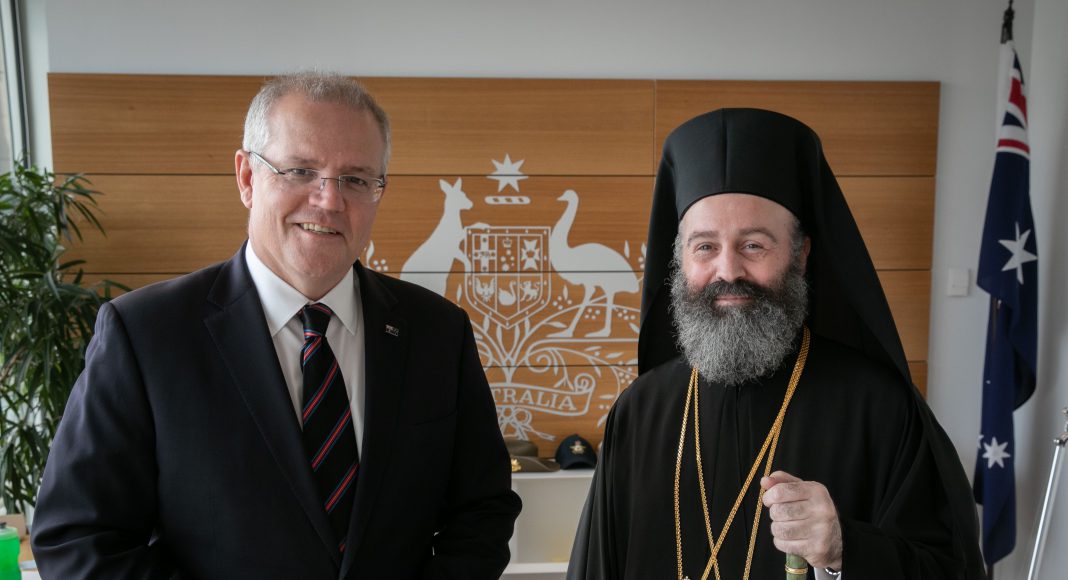Australian Prime Minister Scott Morrison has responded to the growing concerns of His Eminence Archbishop Makarios, affirming to the Greek Orthodox Archdiocese of Australia that private easter ceremonies conducted in the church will not be interrupted by members of authority.
Scott Morrison stressed that Easter Holy Week services for the Orthodox churches are “a special ritual that requires the presence of more than two or three people” and concluded by noting that “The Australian Government will show understanding during this period for the Churches of the Orthodox Archdiocese.”
His Eminence thanked the Prime Minister on his consideration and understanding that the Holy Week for the Orthodox Church is a special event for all Orthodox Christians.
Mr. Makarios has remained in constant communication with the Federal and State Authorities of the country from the early stages of the coronavirus pandemic, a statement released by the Greek Orthodox Archdiocese of Australia reveals.
The announcement by the Prime Minister followed the Archbishop’s concerns regarding the broadcasts of the ceremonies via the internet. “I do not want them to see from the broadcasts that there are more people in the Temple (priest, deacon, right-wing chanter, left-wing chanter, young priest, ministers) and to consider us illegal. I don’t want police officers to come and knock on our doors during the procession”, said His Eminence.
The Minister of Multiculturalism, Mr. Geoff Lee, also sent congratulatory letters to religious leaders in Australia. The minister particularly thanked the Archbishop for his strong leadership during the COVID-19 pandemic, with the Orthodox Church being the first Australian church to take steps to reduce the spread of coronavirus.
